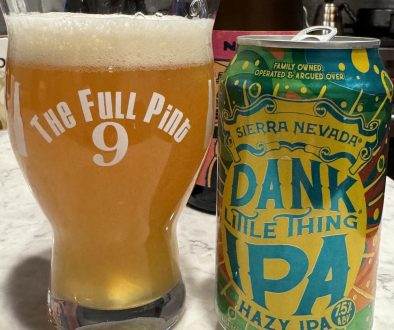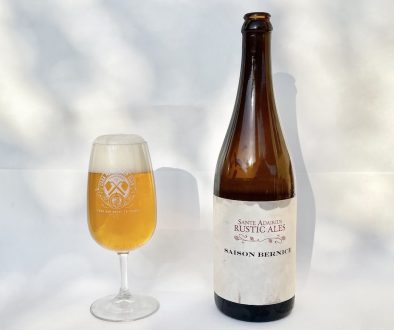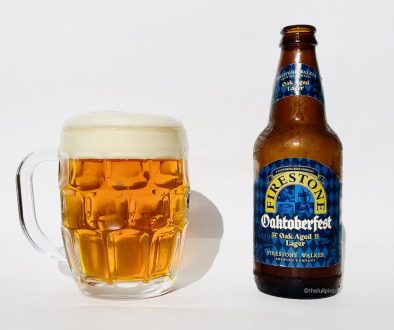Meta: How I Review Beer
Today, I wanted to take a step back to lay out the mentality of beer (or any) reviews in general.
I’ve been reviewing beer since 2008. There’s certainly no correct or best way to review beer, but I think there is a smart way. Reviews of anything, be it restaurants, hotels, AirBnB, or doctors; need to strike a balance between usefulness to the potential consumer and usefulness to the business you are reviewing. That usually means that diagnostic and detailed reviews are more useful than emotional reviews or those that rely on insider information. In addition to reviewing over 10,000 beers in the past decade, I’ve reviewed nearly 2,000 businesses including 300 breweries and brewpubs and 180 craft beer bars. What I find is that critical reviews are almost always the ones that people care about. If you start praising a restaurant, then the rest of the review is just gravy. If it is critical, though, both consumers and businesses will perk up and scrutinize every detail of the review. These reviews should focus not on how bad something is, but why it is unsatisfactory and how it can be fixed. There is a tendency for businesses to respond to these critical reviews, which I normally encourage. Indeed, I can expect a personal note from nearly every business owner after posting a critical review. Some of them are appreciative and want to make improvements for the next interaction. Others will lash out.

A well-written, thoughtful critical review should not be considered a slap in the face, however. It should be seen as free quality control. It is my hope that feedback, both positive and negative, may prove useful in the future. In 2010, I posted a review about a very poor tasting beer that I tried on tap in Philly. I posted the review along with where I found the beer. The brewery saw the review and visited the bar in question. They discovered that their distributor had been sitting on their kegs for several months in hot storage and then sold them to bars in the area well after the kegs’ best before dates. This was a very small, brand new brewery that did not have a lot of control over distribution. The brewery team was immensely thankful and invited me over for beers with them.
I’m sure some of my past reviews have been harsher than necessary, and I have made every effort to improve my methodology to be as diplomatic as possible. My concern is that there comes a level of sugar-coating and beating around the bush that transforms the review into something disingenuous. Indeed, some comments on my reviews have called me out for not flat out saying that a beer is bad. That is my never-ending struggle with the critical review: how to balance the feelings of the business with the curious mind of a potential buyer. I have two audiences with completely different information and completely different goals. The producer knows everything about the beer. The customer may know next to nothing. The producer wants everyone to buy their product, and bad reviews hinder that. The consumer wants to buy the best product for their money, and bad reviews help guide their purchases. However, producers need to see bad reviews not as sabotage to their sales, but as candid feedback on their product quality. Indeed, some of the best businesses are extremely active on social media and send out email surveys incessantly to garner feedback from their clients. Consider the alternative, which is where sales decline for seemingly no reason at all, simply because product quality was poor, but the producer was unaware of just how poor it was. Managers may not know that employees are cutting corners, brewery owners may not know that a new brewer or brewery equipment has altered beer quality. Indeed, I have tried beers time after time that should have been sent down the drain, but someone decided to sell the beer to naïve customers anyway so as to not lose money. Critical reviews may start with “Buyer Beware,” but they could just as easily start with “Proprietors Beware.”
With today’s landscape, instant feedback is a boon to producers. Though what you hear about most of the time is producers complaining about online reviews, the truth is that without online reviews, some businesses would cease to exist. Anyone who has used Yelp to find a Mondays-only taco truck in the middle of a parking lot knows what I mean. More specifically to this craft beer audience, breweries like Hill Farmstead and Tree House would not have lines of pilgrims out the door in the middle of rural nowhere without their quickly-earned reputation on BeerAdvocate and RateBeer. In a perfect world, online reviews should make good businesses more money and bad businesses less money. Because they can be so important, we must write with deep respect for the business and its reputation. But we must also write with honesty – respecting the intelligence of the reader. And on the flip side, readers should respect these opinions, especially when they don’t align their our own. Disagreement is a wonderful thing, but discrediting and undermining are not.
A common but dangerous response I hear from producers is, “I don’t care about critical feedback because our sales are fine.” This is a major business mistake. Sales may continue to increase in the short-term, but it is possible that consumers are one-time patrons only. They check out a new product or business, are not impressed, and then never return. It’s also possible that current sales are merely the product of filling a void in a local market where consumers have few options for comparison. Sales may increase up to a point and then either plateau, or worse, sink once a competitor moves in. Indeed, a business may be wearing rose-colored glasses thanks to a dedicated group of local patrons. Once the business tries to expand, they may find that their product is not competitive.
On the more technical side, there is no beating around the bush that I have affinities for certain beer styles and characteristics. I thought it would be helpful to our readers if I spelled out my personal preferences so that you can control for my palate when you read my reviews. In addition, my opinion of a beer is merely just one person’s point of view and should not be taken as a definitive assessment of a beer’s quality. If you, the reader, generally match up in palate with my own, then my reviews will be increasingly relevant to you. However, it cannot be overstated that beer quality, especially from small breweries, can be incredibly inconsistent from batch to batch. Couple that with different modes of transportation during distribution, storage temperatures, age since packaging, and then ultimately variables at the home or bar such as beer serving temperature, glassware, food pairings, and palate fatigue…the end result is that we all can have wildly different impressions of the same beer.
I ask you to keep this all in the back of your mind when reading my reviews. Below I’ve listed out some preferred beer styles. Keep in mind I sample all sorts of beer styles and don’t necessarily dislike styles not on this list. I’ve also listed out a group of my favorite commercially available beers. I could not possibly fit everything, so I have given just a sampling of beers that come to mind to paint a picture for you of what I have enjoyed in the past. With that, I thank you for making it this far in the post and wish you the very best. Happy beer hunting!
Favorite Styles: bright IPAs and APAs, Berliner Weisse, Black IPA, dry-hopped blonde sours, Flemish Red, Gose, Grisette, Kölsch, Lambic and its variants like Geuze and Kriek, Oud Bruin, Pilsner and pilsner-style variants such as Kellerbier and Zwickelbier, Rauchbier, Saison and other farmhouse-style variants like Grisette and Table Beer.
Favorite Commercial Beers: Aecht Schlenkerla rauchbiers, AleSmith Speedway Stout, Allagash Hoppy Table Beer, Beachwood Amalgamator, Bell’s Oarsman, Bell’s Expedition Stout, Birrificio Italiano Tipopils, Cantillon Iris, De Dolle Oerbier Reserva, De la Senne Taras Boulba, Deschutes Pacific Wonderland Lager, Dogfish Head SeaQuench Ale, Firestone Walker Pivo Pils, Girardin Gueuze Black Label, Heater Allen Pils, Hill Farmstead Legitimacy, Jolly Pumpkin Bam Bière, Jolly Pumpkin La Roja, Maine Beer Peeper Ale, Modern Times Black House, Modern Times Booming Rollers, New Glarus Apple Ale, Pizza Port Swami’s IPA, Port Brewing Santa’s Little Helper, Russian River Consecration, Sierra Nevada Celebration, Southampton Imperial Russian Stout, Stone Tangerine Express, Stone Sublimely Self-Righteous Black IPA, Struise Earthmonk, The Alchemist Focal Banger, Tree House Sap, Trillium Melcher Street IPA, Victory Prima Pils, Victory Storm King.






April 14, 2018 @ 6:33 am
As a food blogger, getting the beer game late, I review beer like I do restaurants; everyone’s experience is different and here’s mine.
Many people in the beer community here in Toronto shy away from posting a negative review in fear of retaliation or not getting free stuff. It’s hard for someone like me to trust any beer review when every single post ends with the words ‘great brew’ or their critique is that it’s too carbonated.
So many new breweries are emerging and their beer isn’t quite consistent yet much like an experience at a restaurant and it will evolve over time while they try to get their process just right. I have been condemned for reviewing beer this way, but like reviewing restaurants, I have no fear of negative publicity because it’s just my opinion and who am I, really?
I’m thinking I’ll take a page out of your book and post the beer styles I actually like so my followers understand better why I like or dislike a beer. I don’t review beer styles I don’t like(Calm down on the hops!) or food I don’t like(olives are gross), so if I don’t like something there’s a reason.
Great post!
April 11, 2018 @ 8:43 pm
Excellent post! Well thought out and written. How do you deal with online haters who send you nasty messages when you give poor reviews of their favorite places/beers? As someone who hates conflict, I probably give higher ratings than I should to avoid backlash from haters.
April 11, 2018 @ 11:24 pm
Thanks for the insightful comment 😉 This is something I am passionate about, so I could write a novel on this topic.
Businesses or die-hard loyalists who lash out emotionally just end up looking foolish and I ignore them. If anything, their childish demeanor re-enforces the critical review. What is actually bad is when a business seriously tries to undermine a critical review. This is the really nasty stuff.
Here is my advice in that situation. First, your initial review needs to be honest. If your review exaggerates, omits crucial details, or is misleading; then you are at fault. However, if the review is honest and tells the whole story, then my advice is this: Don’t Be Afraid and Don’t Back Down.
There’s a very simple game here. Business owners have a major incentive to discredit your critical review and little incentive to praise your positive review. There’s hardly anything in it for them to publicly acknowledge a critical review as having merit. I’ve never seen a brewery on this website say, “Yeah, we messed up.” It’s far easier to say, “You don’t know anything about beer,” or “Your palate is crap.” One I get a lot recently is, “You must have had a bad bottle,” or “Sounds like you found an out-of-code bottle.” I really don’t buy this argument. What, their product is flawless except for some that are flawed? It’s senseless. If I found a bad bottle, then certainly hundreds of others found bad ones too. The only difference is that I’m reviewing it in a public forum. And I’m not saying that my reviews are the truth about a beer. My reviews are my honest opinions. From my perspective, I’m telling a true story. You can believe it or ignore it. But it’s a completely different thing for a business to come in and undermine my story as not being credible.
This is not too different from today’s landscape of “fake news.” With so much information out there in the marketplace, consumers can make better choices than they have ever been able to in the past. Businesses thrive on the lack of perfect information in the marketplace. For instance, a drug company does not want you to know that a $4,000 pill actually costs $4 to make. So sites like Yelp, TripAdvisor, HealthGrades, Glassdoor, reviews on Facebook, Amazon, and Google Reviews…they add more information from third-parties. This information is vital. Before third-party review sites, usually a consumer would buy a product based on packaging, price, or how well the company markets it. Now we can see if the product really is what it claims to be. This can be great for companies that make good products and bad for companies who make inferior products. Like I said in the article, the end goal is that high-quality reviews should make good businesses more money and bad businesses less money. But since businesses thrive on the lack of perfect information, we are seeing a backlash against this consumer-friendly information. Criticism from professional writers is called into question and dubbed “fake.” When quality journalism is undermined and called fake news, there is a winner and a loser. The winner is the business that should have lost money for selling bad products. The loser is you, the reader and consumer. You don’t know what to believe anymore. The truth is obscured.
There’s a bigger question here: How should reviewers stand up to being undermined? We must hold on dearly to the truth. We cannot be afraid to tell our story, and we cannot back down when threatened.
April 10, 2018 @ 4:19 pm
Thanks so much for this post. On social media, I often hem and haw about posting pics of beer I’ve recently tried if I don’t like it. I want to be helpful to others and let them know that I didn’t care for a particular beer for a particular reason but, I also know a lot of hard work went into said beer and in the end, my review of the beer, is just that, my review. Your perspective that not-so-rave reviews also help the brewers encourages me to feel more confident in sharing my perspective; good or bad.
April 10, 2018 @ 10:35 am
You’ve reviewed over 10,000 beers in 10 years? That’s a lot, man. Like three a day, every day. What constitutes a review and where are you posting them all? Serious question.
April 10, 2018 @ 1:09 pm
Hi Ty,
It’s a perpetual joke that has many answers. Consider that the person with the most logged beer ratings/reviews that I know of has over 53,000. That is just the number of unique beers sampled with some sort of text review with a minimum character count. So it could be as simple as “This was good, not great. Amarillo hops didn’t stick out. Probably would not try again.” Technically that is a review. It’s short, but it is enough to be useful to the brewery and to other consumers. Ratebeer and BeerAdvocate used to have this minimum character requirement. Indeed, to get a real number like that on your belt, at least on Ratebeer, you need to actually write something. On Untappd, there is no requirement for writing to get credit for a rating. Without the character requirement, we now have a line that separates a rating from a review. I’ve done well over 10,000 text reviews combined, mostly on Ratebeer and Untappd with a few on BeerAdvocate and most recently here at The Full Pint. Technically with BJCP judging I am reviewing beers, though those are not publicly available and I don’t count those. I don’t know the exact unique count anymore as it isn’t as important to me these days. I’m focused on in-depth reviews, which take a very long time to produce. But to answer your question more directly, those who have very high numbers for the most part travel for beer, attend festivals, and attend monthly tastings to rack up some very high numbers. I used to say my maximum number of beers to sample in a day would be 30. But others will go over 100 in one day. That’s sampling usually 2-4oz pours. The joke is that these “thimble” pours are not enough beer to make a fair review. I agree and disagree with that. I agree that the more of the beer you drink, the more you can write about it. But I disagree in that, if you are a seasoned reviewer, it only takes a few ounces to know if the beer is bad, average, good, or world-class. Most beer out there is not world-class, so having a full glass of it is not necessary. Brewing flaws rear their ugly head quickly. Indeed, if I have to judge 30 beers in one round, I cannot drink the same beer over and over again to get my final impressions. I need to make an assessment with as little liquid as possible so as to continue judging the others in the flight. If a beer is very good, I may come back to it for fun. But I’ve already made an initial assessment. In a judging round, I find that say 8 out of 10 are automatically not in the running for best of show. Those remaining two I will return to as their qualities against each other may be more nuanced.
I hope that answers your question!
April 10, 2018 @ 10:02 am
As someone who desperately wishes to improve my ability to better taste and describe beer, this was a great read! Thanks for sharing